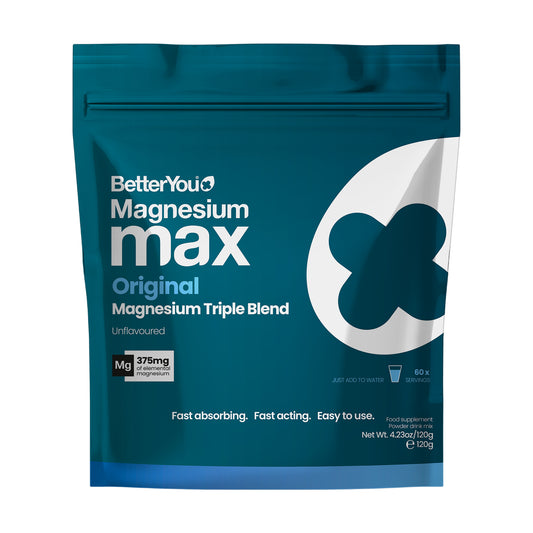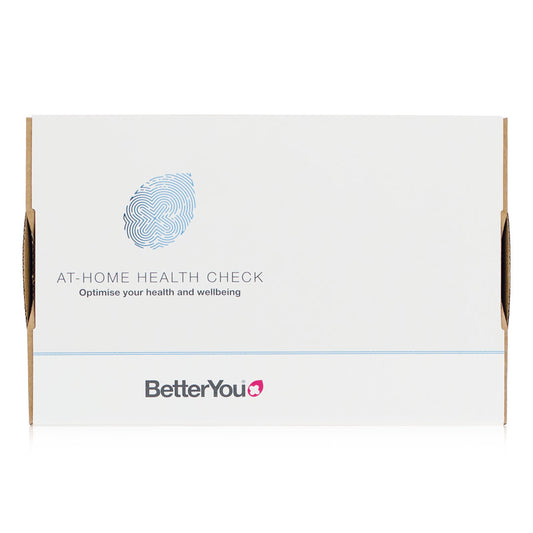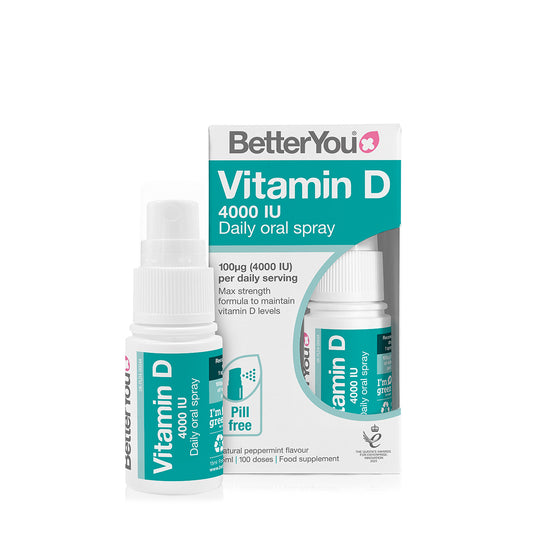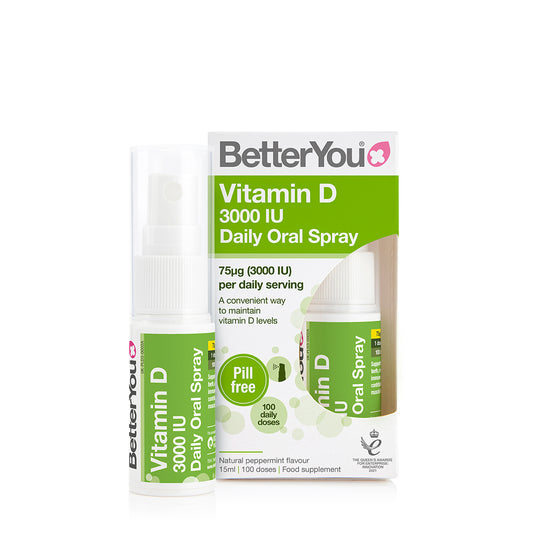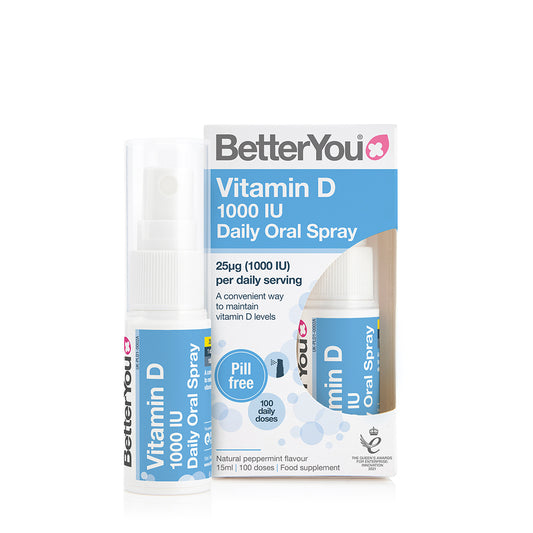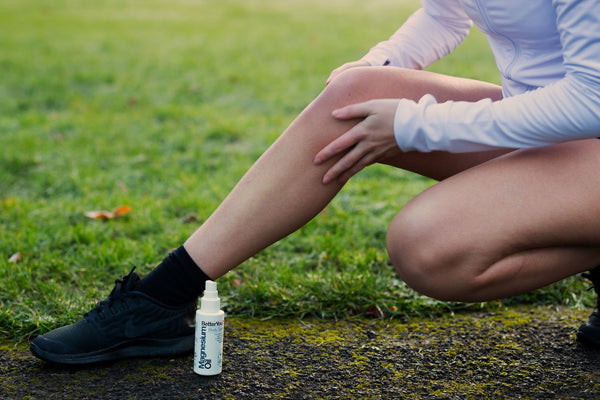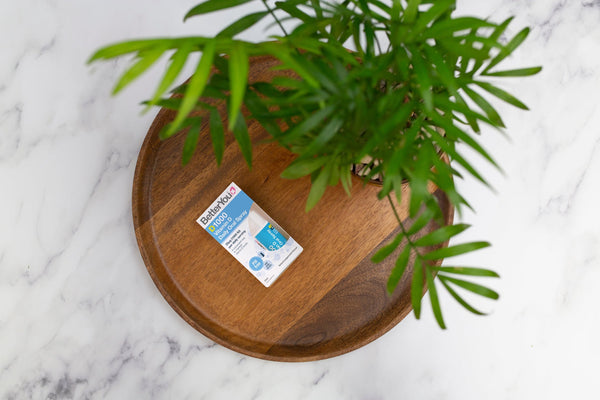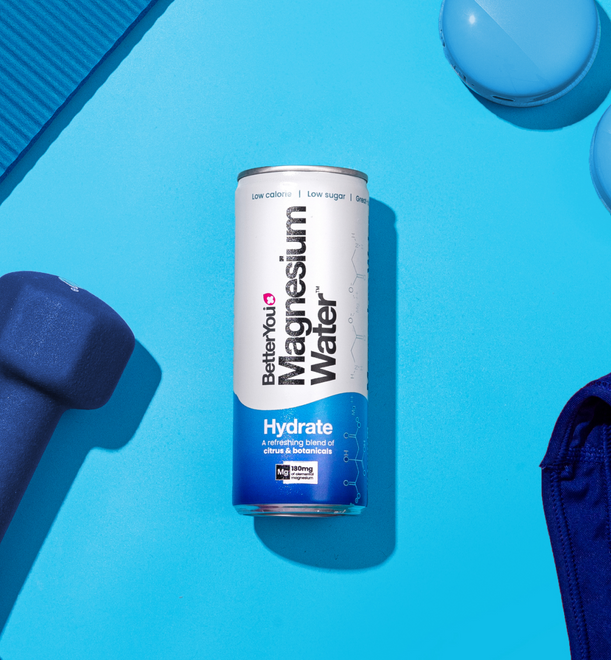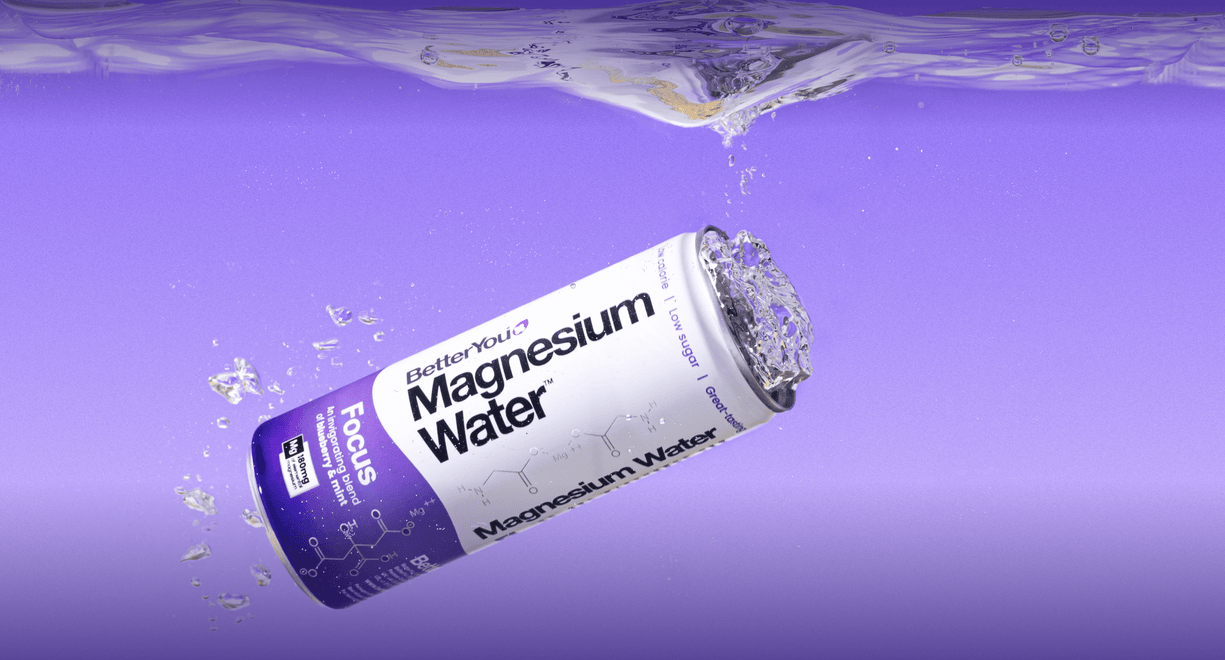Our bodies need Vitamin D for various reasons. It’s an essential nutrient that contributes to a number of key functions, including the absorption of both calcium and phosphorous. It’s also important to take Vitamin D for your immune system.
Vitamin D helps to support the body’s immune response, improving your ability to fight off illness and disease. Essentially, taking sufficient levels of Vitamin D can help fortify your immune system, which is why we need to make sure we’re getting enough every day—particularly during winter.
In this guide, we’ll explain the connection between Vitamin D and immune system function and explore how to boost your daily Vitamin D intake to aid your health and wellbeing.
In this guide:
What is Vitamin D?
Vitamin D is a fat-soluble Vitamin that plays a role in immune cell function, and without a healthy immune system you can be more susceptible to illness and disease.
Vitamin D is made up of a family of nutrients that all share a similar chemical structure. The most common forms of Vitamin D are Vitamin D3 (calcitriol) and D2 (ergocalciferol), which are usually found in your diet. However, there are limited foods that contain Vitamin D naturally.
Why is Vitamin D good for the immune system?
So, how does Vitamin D help immune system function? Vitamin D plays a vital role in the proper functioning of T cells, B cells and dendritic cells, which are all key to immune function and protecting your body from infection.
Your immune system is your body’s first line of defence against infection and disease, so it’s important to make sure your Vitamin D levels aren’t running low.
BetterYou Know
We know that Vitamin D often sparks confusion – is it a vitamin or a hormone? While it's called a vitamin, in your body, Vitamin D is a hormone produced by a chemical reaction that occurs when your skin is exposed to sunlight. For this reason, it’s often known as the ‘sunshine vitamin.

What are the best sources of Vitamin D?
Many people experience Vitamin D deficiency because they’re not sure how to get enough in their system each day.
There are three key sources of Vitamin D:
- Exposure to sunlight
- Food sources
- Vitamin D supplementation
Let’s take a look at each of these in more detail.
Exposure to sunlight
The most natural way to boost your Vitamin D and immune system is by exposing your skin to sunshine. Vitamin D is produced endogenously (in the body) when the sun’s ultraviolet light hits the skin and triggers Vitamin D synthesis.
In the UK, it’s recommended to get between 10 to 20 minutes of midday sun exposure per day to help increase your Vitamin D intake. But this can also depend on the time of year, your skin colour, how much of your skin is exposed, and the weather conditions.
For many people, it may not be possible to get outside in the sun for long enough every day. In these cases, other ways of obtaining vitamin D may be required. Meanwhile, overexposure to the sun’s rays carries risks too, so it’s important to wear broad-spectrum SPF (sun protection factor), such as sun cream.
During winter, it can be challenging to get the recommended Vitamin D requirements from sunlight alone. The sun’s lower angle reduces how much UVB (ultraviolet B radiation) reaches the Earth, making it harder for us to produce Vitamin D.
Vitamin D is only stored within your body for around two months, so the Vitamin D accumulated during the summer will start to dwindle in the autumn months. Therefore, it’s often recommended to take Vitamin D for immune system support and top up your levels with supplements. That way, you can keep your nutrients at a healthy level year-round.

Food sources
The most easily absorbed forms of Vitamin D, which are available from both your diet or from supplements, are Vitamin D3 and D2. This is the natural form of Vitamin D that your body makes from sunlight, but it can also be obtained by eating certain foods as part of a healthy diet.
Vitamin D3 is commonly found in animal-sourced foods such as:
- Oily fish – such as tuna, salmon and sardines
- Liver
- Eggs
- Cheese
On the other hand, Vitamin D2 is found in plant sources and fortified foods including:
- Mushrooms
- Fortified foods – cereals, orange juice
When choosing supplements, always choose supplements that contain D3. Our bodies absorb and utilise Vitamin D3 more effectively – which is why we use it across all of our Vitamin D supplements.
Vitamin D supplements
If you feel like you’re not getting enough Vitamin D naturally, you can take Vitamin D supplements to help boost levels within your body. Many people opt to take tablets and capsules, but not everyone feels comfortable with taking supplements in this form.
Our specially formulated Vitamin D sprays from BetterYou can deliver fast-absorbing and fast-acting Vitamin D supplementation through the soft tissue of your mouth. This makes them a great alternative to tablets and capsules, especially if you struggle with or dislike swallowing them.
Depending on how much your Vitamin D levels need to be topped up, our vitamin sprays are available in three different dosages to make sure you don’t consume too much Vitamin D.
Vitamin D for children
For children, even with a healthy diet and exposure to sunlight, it can still be difficult to ensure they’re getting adequate levels of Vitamin D for their immune system, growth and development.
It can also be tricky to get young children to swallow tablets too. Our infant and junior oral sprays are a great alternative, to get children to take Vitamin D.
These sprays contain a lower dosage of Vitamin D than our adult versions, as children need to maintain a much lower Vitamin D level.
Helping to support bones, teeth and your immune system, Vitamin D sprays provide the optimum dosage and enter the bloodstream quickly.
Not sure whether you should be taking Vitamin D supplements, or how much your body needs? You can take one of our at-home test kits and check your baseline levels from the comfort of your couch.
How much Vitamin D should you take to help boost the immune system?
When taking Vitamin D for your immune system, knowing the dosage you should be taking can help you understand whether you’re taking too much or too little.
Vitamin D requirements can vary widely depending on where you live and your lifestyle. However, taking too much Vitamin D can cause a calcium build-up and lead to weak bones, kidneys and heart damage.
When it comes to understanding how much Vitamin D you need, the NHS provides clear guidance on minimum and maximum daily levels for different age groups to prevent deficiency. However, through our work with the Sandwell and West Birmingham Trust, we’ve identified optimal daily doses that go beyond just avoiding deficiency—helping you achieve the levels required for better health and wellbeing.
Here’s how the recommendations compare:
| Age | Minimum recommended Vitamin D dose | Maximum recommended Vitamin D dose |
|---|---|---|
| Newborn – 12 months | 8.5-10 μg | 25 μg |
| 1 – 10 years old | 10 μg | 50 μg |
| 11-17 years old | 10 μg | 100 μg |
| 18+ | 10 μg | 100 μg |
Some groups are advised to take some form of Vitamin D supplement regularly all year round, including people who are unable to obtain regular exposure to sunshine, and ethnic minority groups with dark skin.
Find out more about how to spot low Vitamin D levels and at-risk groups in our guide on raising awareness of Vitamin D deficiency.
A Better Way to a BetterYou
At BetterYou, we understand that modern life, food production, and our environment make it harder to get the nutrients we need from diet alone. That's why we're here—to offer you a better way to a BetterYou.
As experts in fast, effective supplements, we focus on essential nutrients that help your body function at its best. Using the most bioavailable forms of ingredients and innovative delivery methods like oral sprays and transdermal oils, we ensure quick and efficient delivery of nutrients right where you need them.
Whether you're looking for immune support, better sleep, or enhanced sports performance, we’re available in major retailers. You can find us in Tesco, Holland & Barrett, and Boots, as well as online and on Amazon, making it easy to find the products you need.
